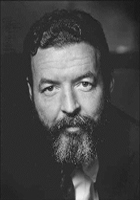Losses Comments
It was not dying: everybody died.
It was not dying: we had died before
In the routine crashes-- and our fields
Called up the papers, wrote home to our folks,
...
Read full text
TWO: They perish "on the wrong page of the almanac, " scattered across distant mountains or diving into haystacks. These deaths are not heroic or noble; they resemble the passing of aunts, pets, or foreigners.
ONE: This poem goes about the disillusionment and futility of war. Through its understated and ironic tone, the poem highlights the impersonal nature of death experienced by pilots. .
Congratulations being chosen once again in the same calendar year as The Modern Poem Of The Day.5 ***** for this amazing poem about the alienation of war
THREE: lamenting the fact that we are all powerless in the face of our own mortality. This poem is about the profound impact of war and the dehumanizing effect it has on those involved. % Stars absolutely
TWO: It suggests that the true losses are not just the deaths of individual soldiers but also the loss of innocence, humanity, and meaning. The poet reflects on the fragility of life and the inevitability of death,
ONE: It is about the disillusionment and futility of war. It highlights the routine and impersonal nature of death, which is experienced by the pilots "on the wrong page of the almanac" Through its use of understatement and irony, the poem conveys the absurdity and tragedy of war.
When we lasted long enough they gave us medals; When we died they said, 'Our casualties were low.'
Let me quote from this fine poem, 'They said, 'Here are the maps'; we burned the cities........And the cities said to me: 'Why are you dying? We are satisfied, if you are; but why did I die? '
A soldier is also a human, an instrument employed to fight for either side.His death is only a number, his dead body may be found among the bodies whom he destroyed.(Part-2)
Wars between Russia and Ukraine, between Israel and Palestine still causing extensive destruction of cities and human casualties.In this scenario where does a soldier stand? (Part-1)
Woes of war..Dying and not dying..If ruined cities they are witnessing the death due to human folly and rest Susan has described nicely
It is not dying that we fear but the violence in our minds That makes the bombs we drop And keep the war machines in their grind
One of the great poems about the alienation of war, expressing particularly well the narrator's lack of life experience. He has nothing but high school to compare to the huge, all-encompassing experiences of war. His lack of any life beyond high school before he is sacrificed in the war increases his loss - he has lost all the potential of his life - and he doesn't really understand why he is making this sacrifice. Jarrell is, to me, the great poet of WWII, and a better poet at conveying the existentialism of the warrior than any of the great English WWI poets.

THREE: The poem suggests that true losses extend beyond individual lives to innocence, humanity, and meaning. War numbs us to death, rendering it almost meaningless, and normalizes the horrors we perpetrate